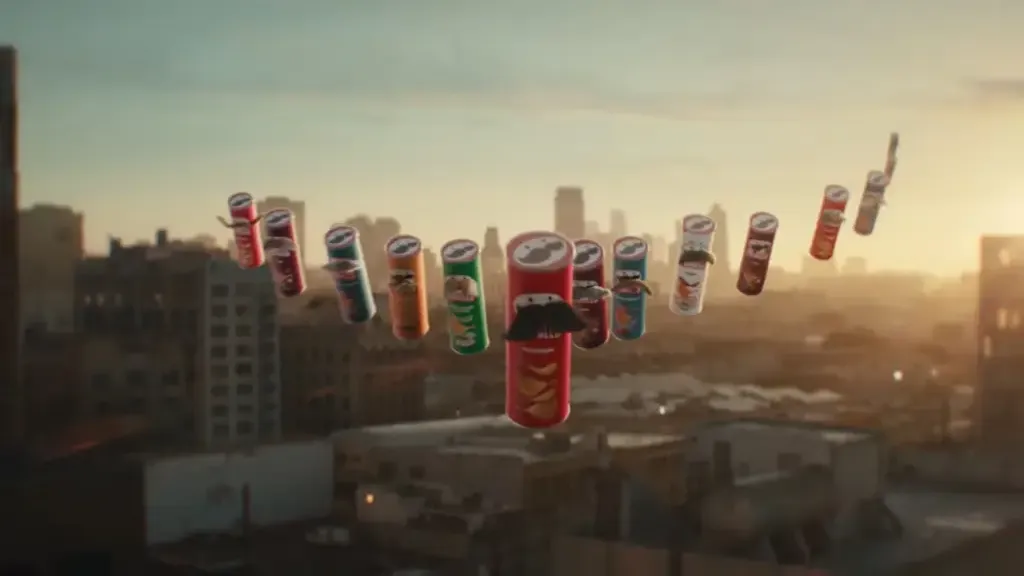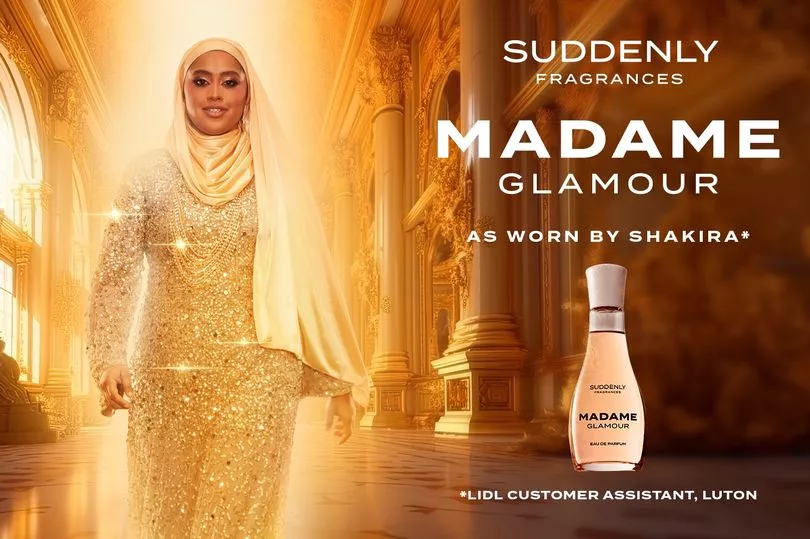Let’s get one thing straight: this campaign should not have worked.
On paper, it sounds completely unhinged. A man at a Super Bowl party runs out of Pringles. He blows into an empty can like it’s a medieval war horn. In response, facial hair detaches from the faces of celebrities and flies (yes, flies!) across the country to deliver snacks.
I’ve worked in marketing for nearly two decades, and I’ve seen everything. But this? This was a whole new flavor of weird… And it was brilliant!
Because against every rule we’re taught, The Call of the Mustaches didn’t just stand out, it sold. The ad landed among the top 1% of Super Bowl campaigns in 2025. It drove an 8.4% spike in unit sales. It sparked conversations online and off. And most importantly, it did what few ads manage to do: it made people care. Not about the flavor. Not about the price. But about the brand.
So, let’s talk about why…
Because if you’re in marketing, or building a brand, launching a startup, or just trying to get attention in a crowded room, there’s something here for you. Something about risk. About weirdness. About knowing when to throw out the playbook and just fly the mustache.

Playing It Safe Doesn’t Sell
Let me start with a confession: I’ve written my share of safe campaigns. Neatly structured taglines. Clean visuals. Feature-led messaging that ticks all the boxes. The kind that gets polite nods in client meetings and lands in-market with a gentle thud.
We do this because it’s comfortable. Because weird feels risky. Because we’re taught marketing is about clarity and consistency, and those things matter.
- But clarity without emotion? Forgettable.
- Consistency without surprise? Invisible.
- Marketing without soul? That’s just noise.
Pringles didn’t play it safe. They went surreal. They picked absurdity over logic, storytelling over specs, and joy over convention. And it worked.
The ad wasn’t just about chips. It was about that moment when a party grinds to a halt because the snacks run out. The minor panic. The awkward silence. The fantasy of a flying mustache saving the day. It turned a relatable moment into brand theatre.
And the weirdest part? It didn’t just entertain. It moved product.

Why Now? Context Matters
At the time, Pringles wasn’t exactly winning the snack aisle. Their dollar share was hovering at 3.4%, well behind Lay’s (13%) and Cheetos (6.7%). Mr. P, their iconic mascot, had faded into near-background noise. Competitors were launching new flavors every quarter, building hype with Gen Z influencers, and making snack food cultural.
Pringles needed to shake things up. But they didn’t try to outshout the competition. They sang a stranger tune. They went inward, found their quirkiest asset, the mustache, and built the entire campaign around that.
FCB New York pitched something wild, and Pringles said yes. That choice, to bet on a wild creative idea rather than tweak another version of “now crispier than ever,” made all the difference.
And it paid off with interest.
The Campaign: Anatomy of a Mustache Takeover
- The Spot
Airing in the second quarter of Super Bowl LIX (prime placement, at $7–8M per 30 seconds), the ad featured Adam Brody discovering an empty can of Pringles. He blows into it like a horn. Cue chaos: mustaches detach from famous faces and fly across the country.
- Nick Offerman’s facial hair? Gone mid-sentence.
- James Harden’s? Gone mid-basketball game.
- Andy Reid? Watches his mustache fly off with sad resignation.
The mustaches zoom to stores, attach themselves to fresh Pringles cans, and fly back to the party. It’s absurd. And delightful.
- The Long Cut
Online, a longer 1:13 version pushed the weirdness further. Campy music. Extra celebrity moments. The jingle? A parody of the 1960s Batman theme: “Na na na na… mustache!”
- Pre-Game Teasers
Weeks before the Super Bowl, redesigned cans featuring mustache silhouettes hinted at the campaign. Fans were encouraged to guess which celebrities would feature. It created curiosity and engagement before the main event.
- Influencer Push
Food creators like Meredith Hayden and Vic Blends were brought into the mix. The campaign wasn’t confined to TV. It lived across social, in-store, YouTube, TikTok, and influencer content. The team even integrated “mustache transformations” and branded makeovers to generate real-world moments that made their way online.
- Product Integration
To land the joke (and the sale) Pringles dropped two new flavors as part of the campaign: Loaded Potato Skins and Miller Lite Beer Can Chicken. The flavors were visible in the ads and immediately available in stores. Returning fan-favorite 7-Layer Dip was also reintroduced.
This wasn’t just storytelling. It was storytelling with a SKU.

Why It Worked: A Deeper Look
- The Mustache Became a Character
Most brands would keep the mascot static. Pringles made Mr. P’s mustache the star. It moved. It took action. It carried meaning.
Too often, brand assets sit idle. Pringles showed how to make a symbol do something.
- The Weird Was Earned
There’s a difference between weird for weird’s sake and weird that comes from a real insight. Running out of snacks mid-party is a real tension. The mustache? That’s how Pringles solved it, in their universe.
Weirdness with logic is memorable. Weirdness without it is noise.
- Humor With Texture
This wasn’t just gag humor. It had references (Batman theme). It had sentiment (Andy Reid’s farewell glance). It had moments that stuck. It was written with layers, not punchlines.
- Cultural Fit
Celebrities weren’t just tacked on. They made sense. Offerman, Harden, Reid, all iconic mustaches. No square pegs. Just the right faces for the story.
- Anticipation and Payoff
People knew something was coming. The payoff was worth it. Teasers didn’t spoil the surprise; they built the appetite. And more importantly, they made people part of the game.
- The Super Bowl as a Launch, Not a Finale
Too many campaigns treat the Super Bowl like the finish line. Pringles treated it like the beginning. That gave the whole effort longer legs.
And legs matter when your mascot flies.

The Numbers Don’t Lie
Let’s ground all this in data:
- 8.4% lift in unit sales over the same quarter the previous year
- Top 1% ranking in Ipsos Super Bowl ad effectiveness
- 7.5 billion earned impressions
- Hundreds of thousands of organic social shares
- Influencer collaborations reaching 100M+ followers collectively
For a snack brand that was fourth in line for shelf space? That’s serious movement.
What It Means for the Rest of Us
You don’t need a Super Bowl budget to apply the thinking behind this campaign. The tactics may be high-end, but the strategy is universal:
- Use what you already have in a new way
- Tap into real human moments
- Take risks that feel “too weird”
- Plan for a story, not just a message
- Make people feel something before you ask them to do something
- Turn passive brand assets into active ones
- Think of advertising as entertainment, not interruption
- Don’t launch campaigns, launch conversations
8 Lessons I’m Stealing From This Campaign
- Weird beats safe, when there’s logic beneath it.
- Your oldest asset might be your freshest idea.
- Humor works better when it feels personal.
- Pre-launch matters. Curiosity is fuel.
- Story drives sharing, not slogans.
- Be everywhere your audience is—not just on TV.
- Don’t over-explain. Trust the viewer to catch up.
- Treat ads as experiences, not announcements.

Bonus Takeaway: Weird Is a Business Strategy
The easy assumption is that weirdness is a flavor of creativity; it’s not. It’s a business lever. Pringles used it to break through a tired category. They turned their mustache into a differentiator. They rewired how people thought of a shelf-stable potato snack.
Think about that.
When’s the last time you reimagined your brand’s weirdest feature as a strength?

Final Thought: Sometimes Absurdity Wins
Here’s the point: most marketers will look at a flying mustache and think, “That’s insane.” But maybe that’s the point. We don’t need more clever headlines. We need stuff that actually sticks.
Because in a world of endless scrolls and background noise, the real risk isn’t being strange.
It’s being ignored.
And if that takes a flying mustache to fix?
So be it.



